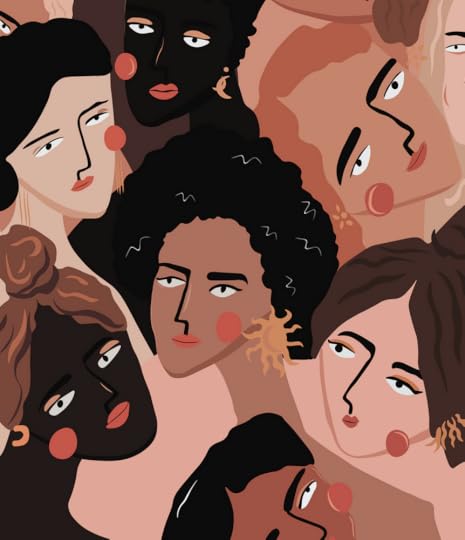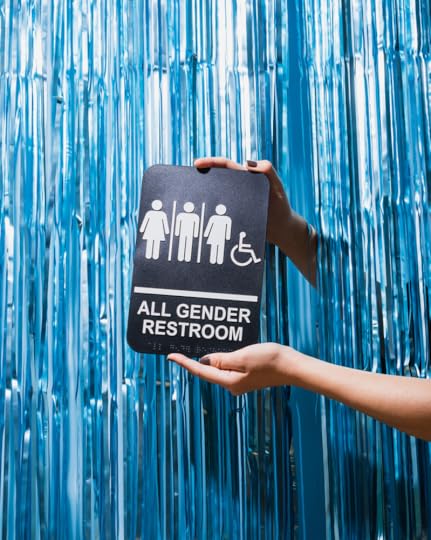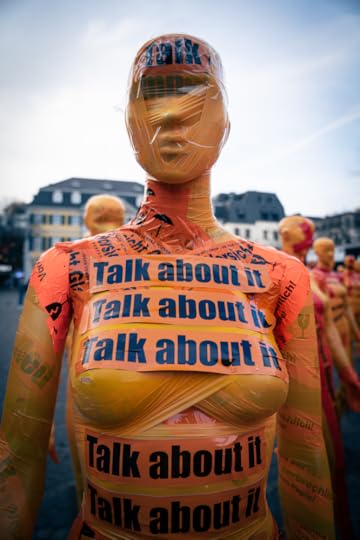Judith Jackson-Pomeroy's Blog, page 2
October 25, 2021
Weight of a Woman: Updates

Any day now, I'm expecting news on the book cover design for my novel, Weight of a Woman, scheduled for release with Odyssey Books in 2024. I would love your input, so stay tuned for the reveal and weigh in on the options.
Doing Gender: Sugar and Spice and Everything Nice....

What are little girls made of? Sugar and spice and everything nice, that's what little girls are made of. Little boys are made of snips, snails, and puppy-dogs' tails, so the nursery rhyme goes. But that's old, you say. Things have changed, you say. So, what are little girls and boys made of today? Well, the more things change, the more they stay the same.
Gender, the act of being a girl or a boy, is something that is done to us, not who we are at birth. Yes, most of us are born female or male, a girl or a boy, which refers to our reproductive biology, but we learn to behave like a girl or a boy; that is, to portray feminine or masculine traits associated with being a girl or a boy.
Think about all the times in a day you hear someone say, "he's such a boy," or, "I have boys, and you know what that's like." Conversely, you'll hear some of the same things said about parenting girl children. We hold steadfastly to this idea that we're born with a gender; that is, masculine and feminine behaviors are natural for girls and boys, respectively, but as a gender scholar, I'm here to shine a white-hot light on that lie. Of course, I'm not the first to do so. In fact, I stand in good company on this point. If you want to peruse some of the great work on Doing Gender, I refer you to Simone de Beauvoir, and Candace West and Don Zimmerman, among the plethora of other gender scholars, activists, philosophers, and writers who have been talking this up for years.
I certainly enjoyed my dolls as a girl, and despite raising my two daughters with gender neutrality in mind, they also loved nothing more than pushing a stroller and getting their dollies dressed up. That being said, I also observed them building things, crashing cars, being loud, and lots of other traits we think of as 'masculine' and associate with boys. But stop right there, because I cannot and should not extrapolate my one example to all of humankind, and neither should you. That's when we turn to social science to ask the big questions and get some answers. Margaret Mead, A brilliant anthropologist who was studying the people of Papua New Guinea, identified a broad range of traits in the people there, many of which contradicted our gender arrangements in the West. For example, men were described as gossipy and nurturing, while women were expected to be brave. In sharing this information, in no way do I mean to suggest that we should discourage feminine or masculine behavior in our girls and boys, but rather that we should encourage our children to become who they are and begin thinking of "feminine" and "masculine" traits as human traits.
You might ask, why bother? Why should we care? In answer to that, I implore you to consider the health consequences of Doing Gender. Specifically, people who exhibit more masculine traits have higher rates of heart disease, Covid-19, and alcohol-related illnesses, while those who portray feminine traits have a higher likelihood of mental health problems, and low self-esteem. In short, Doing Gender is quite literally killing us.
Ending on an up note, please take a look at Sandra Bem's findings from her study on masculinity and femininity and mental health; it's an oldy but goody. Specifically, Bem found that some masculine traits are actually good for us, like being assertive, taking care of yourself (before others) and so we should all try to practice some of those. Similarly, being compassionate, understanding, and caring about others -- all traits associated with femininity -- are good (in the right measure), because they help us connect with others, which is good for our health. Bem found that the "healthiest" people were those who had a good mix of both the (positive) masculine and feminine traits, while the "sickest" were those who exhibited either mostly masculine or feminine traits. The "healthy" people are referred to as androgynous, as they have a blend of the (positive) masculine and (positive) feminine traits. Let's work toward androgyny and health.
October 24, 2021
The Fourth Anniversary of #MeToo: You Are Not Alone

October 15th, 2017 was a day most of us were feeling alone. Then at noon, Alyssa Milano tweeted, "If you've been sexually harassed or assaulted write 'me too' as a reply to this tweet." Her tweet was in large part a response to the sexual assault allegations against Harry Weinstein.
Tarana Burke, activist and sexual assault survivor, first used the term in 2006 on Myspace, where she encouraged survivors to come together in solidarity (on social media) and break their silence. Burke was especially concerned with raising the voices of the most vulnerable survivors.
On the 4th anniversary of #MeToo the movement celebrated with a showcase of artistry that promotes the movement to end sexual violence. For a pick-me-up, I highly recommend you download the celebration! Note, you can also subscribe to updates from the #MeToo Organization at that link, which will provide you with all kinds of information and connect you to a deeply empathetic and supportive community.
As for me, my work to end sexual violence started in 1989. In my (more than) 30 years as a gender scholar, I've learned that (among other social causes) gender socialization (i.e., raising girls to "be girls" and boys to "be boys") is a major contributor to sexual violence against women. I will admit that, after 30 years in this fight, there are days when I feel utterly stricken with despair and hopelessness, but today I celebrate along
with all the survivors, and the women and men who work, pray, and protest along with me.
If you'd like to read my latest writing in this effort, please click here. This article, titled #MeToo: Sexual Violence, Race, and Black Girls Matter, was published in 2019 in collaboration with my esteemed colleagues, LaShawnda Lyndsay-Dennis, PhD, and Linda Williams, PhD, at The Justice and Gender-Based Violence Research Initiative at Wellesley Centers for Women, Wellesley College.
And, remember, you are not alone. Talk about it, and don't ever stop.



